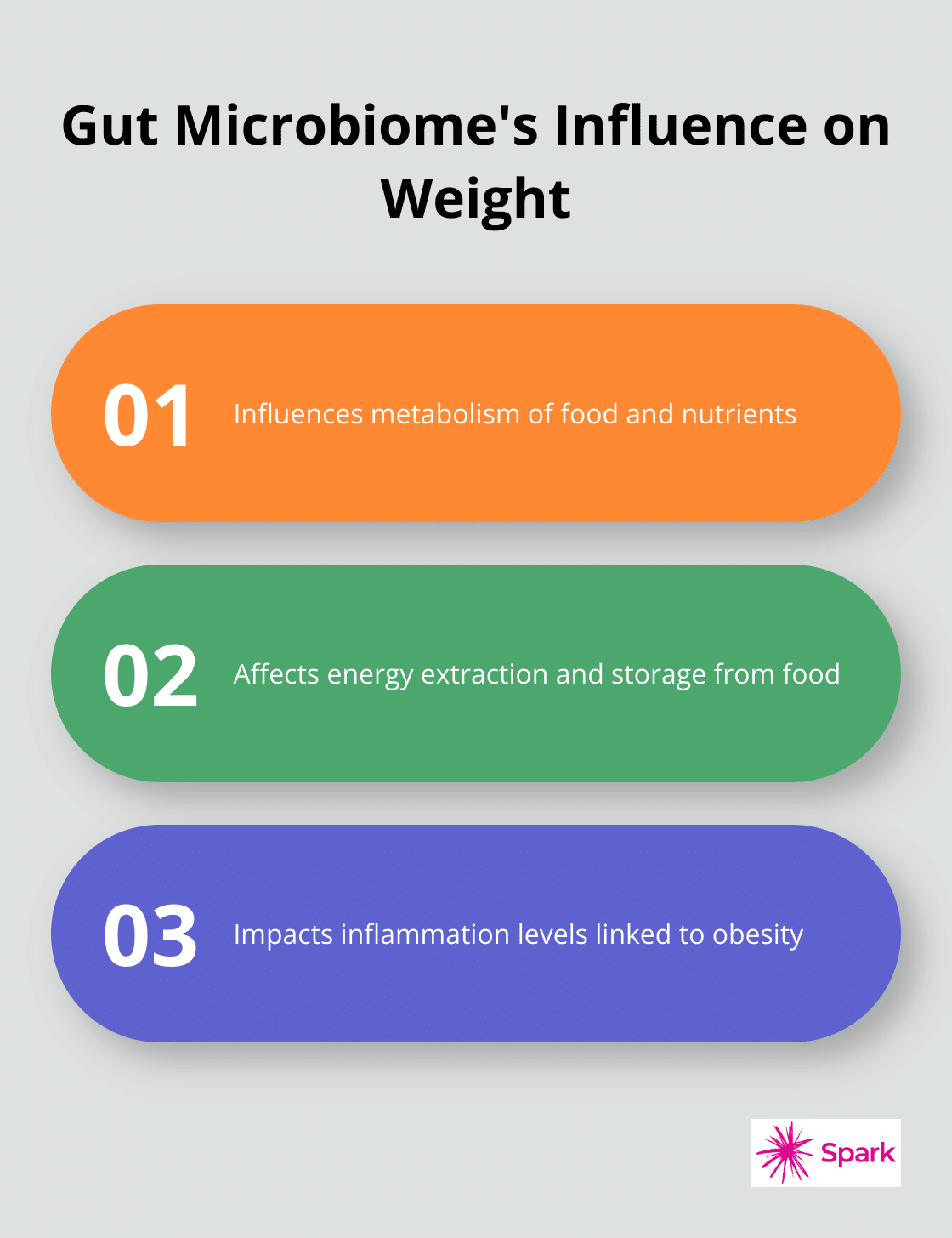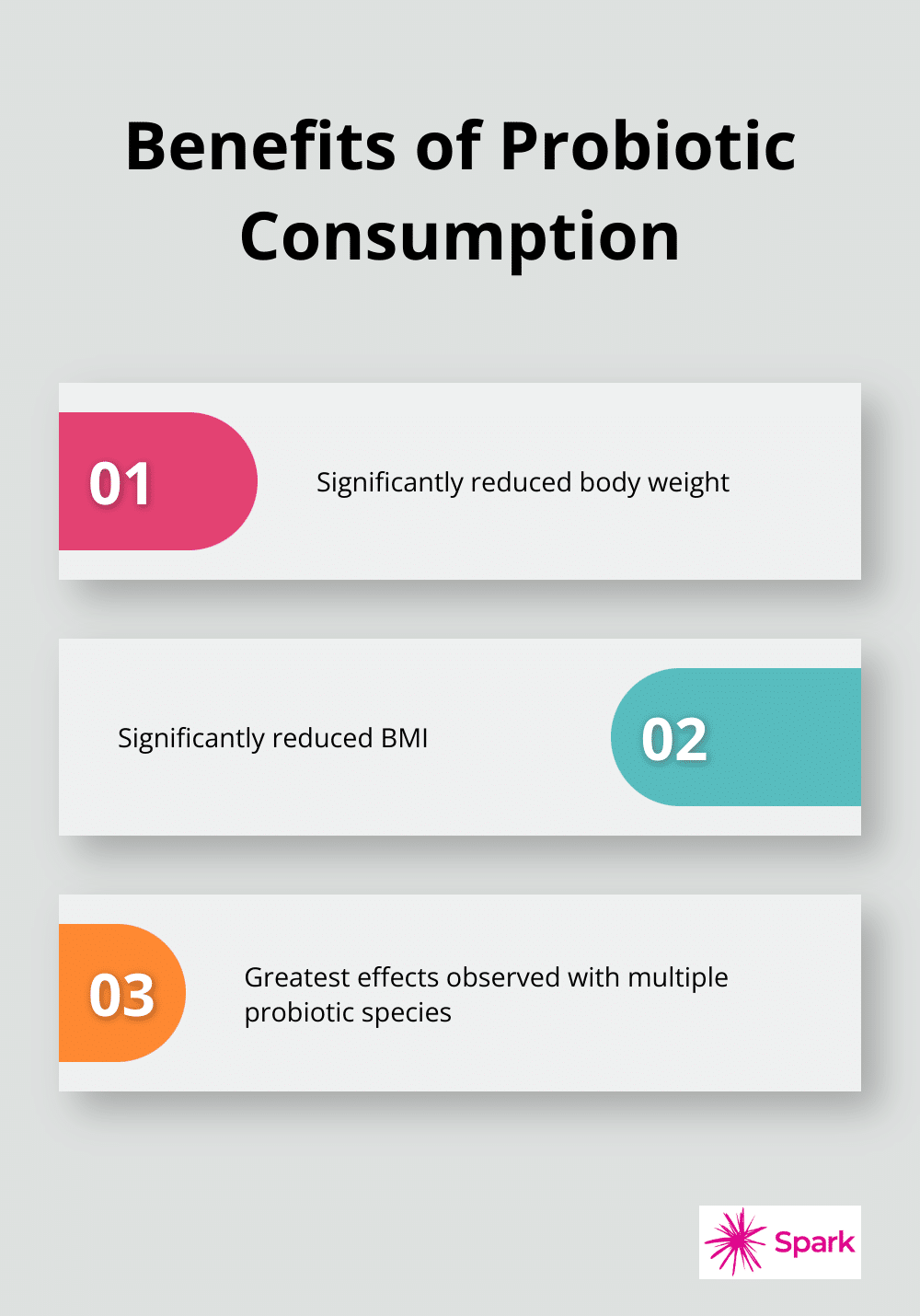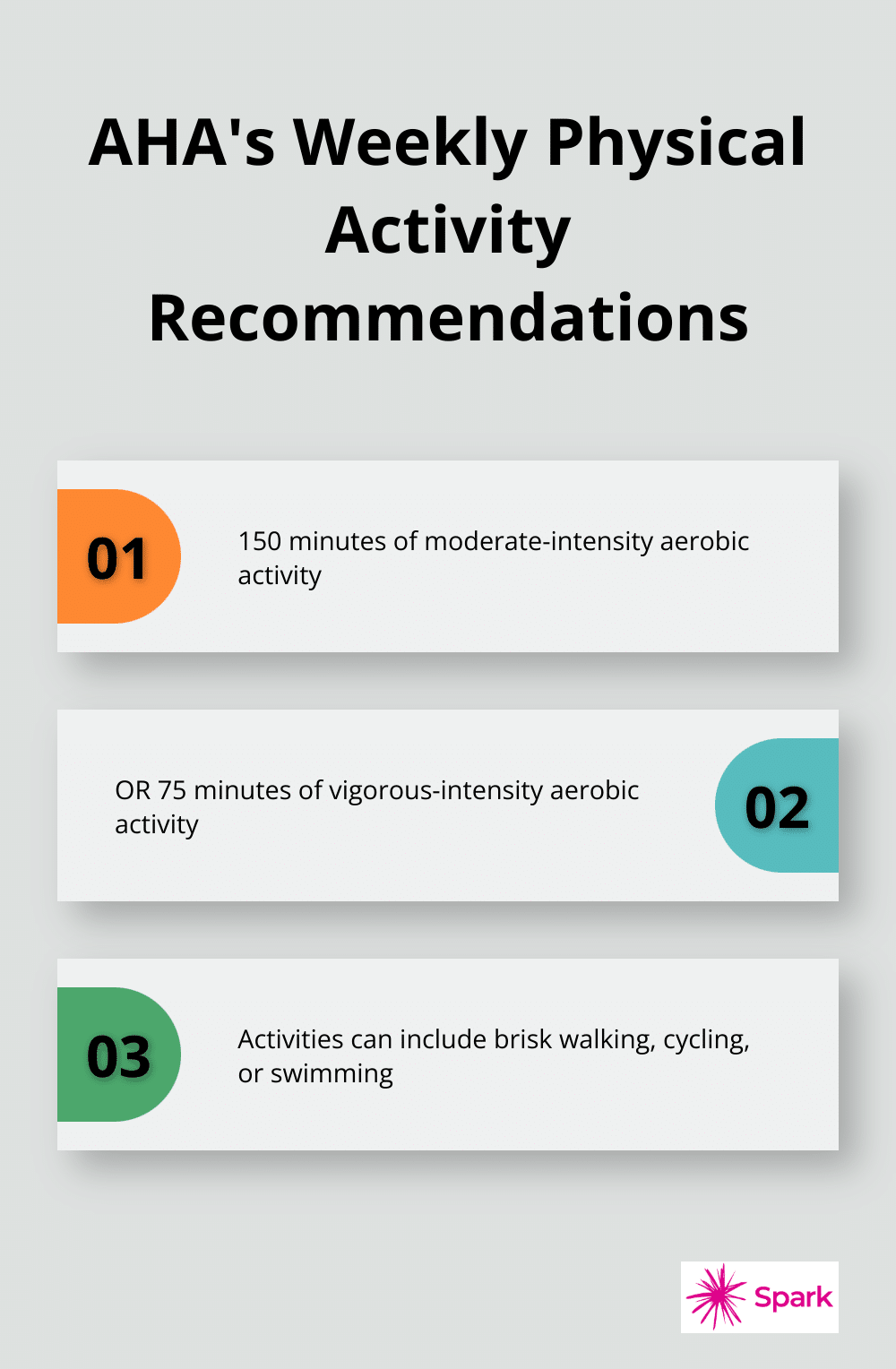At Spark Healthcare, we’ve seen firsthand how gut health plays a crucial role in weight management.
Many people struggle with weight loss, unaware that the key to success may lie in their digestive system. Understanding how to improve gut health for weight loss can be a game-changer in your fitness journey.
In this post, we’ll explore the intricate connection between your gut microbiome and weight, and provide practical strategies to optimize your digestive health for effective, sustainable weight loss.
The Gut Microbiome’s Impact on Weight
Understanding the Gut Ecosystem
Your gut houses trillions of microorganisms, collectively known as the gut microbiome. This complex ecosystem significantly influences your overall health, including your weight. Recent research has illuminated the intricate relationship between gut health and weight management.
The Gut-Weight Balance
Studies reveal that the gut microbiome can influence your body weight. Research has shown that obese individuals present different proportions of certain gut bacteria compared to lean individuals. This underscores the importance of maintaining a diverse and balanced gut microbiome for effective weight management.

Metabolism and Gut Health
Your gut microbiome affects how you metabolize food and store energy. Certain bacteria extract energy from food more efficiently, potentially leading to weight gain. Research has found that some gut bacteria increase the absorption of dietary fat, resulting in more calories stored as fat.
Inflammation and Weight Gain
Chronic inflammation links the gut microbiota to obesity and insulin resistance. This inflammation disrupts the body’s ability to regulate appetite and metabolism, making weight loss more challenging.
Improving Gut Health for Weight Loss
To enhance your gut health for weight loss, eat a diverse range of whole foods, particularly those rich in fiber. Include fermented foods (like yogurt and kefir) to introduce beneficial bacteria. These foods produce short-chain fatty acids in the gastrointestinal tract that can regulate the intestinal microbiome and inhibit inflammatory pathways. Regular exercise also positively impacts gut microbiome diversity.
The complex relationship between gut health and weight extends beyond these factors. The next section will explore specific dietary strategies that can optimize your gut health and support effective weight loss.
Eating for Gut Health and Weight Loss
Fiber: The Foundation of Gut Health
Increasing your fiber intake can be beneficial for weight management. A study found that a high protein diet was associated with greater fat loss and lower blood pressure compared to a high carbohydrate, high fiber diet. High-fiber foods (such as beans, lentils, whole grains, and vegetables) nourish beneficial gut bacteria and promote satiety.
The Power of Probiotics
Probiotic-rich foods enhance gut microbiome diversity. Yogurt, kefir, sauerkraut, and kimchi serve as excellent sources of beneficial bacteria. A 2016 meta-analysis in the International Journal of Food Sciences and Nutrition demonstrated that probiotic consumption significantly reduced body weight and BMI, with the greatest effects observed when multiple probiotic species were consumed.

Eliminate Processed Foods
Processed foods and added sugars negatively impact gut health and weight. A study in Cell Metabolism found that individuals consuming ultra-processed foods ingested about 500 more calories per day compared to those on a whole foods diet. Replace processed snacks with whole fruits, vegetables, and nuts. When grocery shopping, focus on the perimeter of the store where fresh, whole foods are typically located.
Hydration: A Key Player
Proper hydration plays a vital role in gut health and weight loss. Water facilitates the movement of fiber through your digestive system and supports the intestinal mucus lining. A study in the Annals of Family Medicine linked inadequate hydration with higher BMIs. Try to drink at least 8 glasses of water daily, and consider starting your day with a large glass of water to jumpstart your metabolism.
Implementing these dietary strategies not only supports weight loss but also improves overall gut health. However, diet is just one piece of the puzzle. The next section will explore how lifestyle factors significantly impact your gut microbiome and weight loss journey.
How Lifestyle Impacts Gut Health and Weight Loss
The Stress-Gut Connection
Chronic stress negatively affects your gut microbiome. A study in Brain, Behavior, and Immunity found that stress alters gut bacteria composition, potentially leading to inflammation and weight gain. To combat stress, incorporate mindfulness practices into your daily routine. A 2017 study in Frontiers in Psychology showed that just 10 minutes of daily meditation can reduce stress and anxiety levels. Regular physical activity (such as a 30-minute walk or yoga session) can also help manage stress and improve gut health.
Exercise for a Diverse Microbiome
Physical activity does more than burn calories; it promotes a diverse and healthy gut microbiome. Research published in Medicine & Science in Sports & Exercise revealed that athletes have a more diverse gut microbiome compared to sedentary individuals. Try to engage in at least 150 minutes of moderate-intensity aerobic activity or 75 minutes of vigorous-intensity aerobic activity per week (as recommended by the American Heart Association). This can include activities like brisk walking, cycling, or swimming.

Sleep Quality and Gut Balance
Poor sleep disrupts your gut microbiome and hinders weight loss efforts. Research has shown that sleep fragmentation can affect gut microbiota. Prioritize 7-9 hours of quality sleep each night. Establish a consistent sleep schedule, create a relaxing bedtime routine, and avoid screens at least an hour before bed to improve your sleep quality.
Antibiotic Use and Microbiome Health
Antibiotics, while sometimes necessary, can significantly disrupt your gut microbiome. A study in Nature found that antibiotic use can alter gut bacteria for up to a year. If you must take antibiotics, consider taking a high-quality probiotic supplement to help restore beneficial bacteria. (Always consult with your healthcare provider before starting any new supplement regimen.)
Holistic Approach to Gut Health
Implement these lifestyle changes alongside dietary strategies to create an environment that supports a healthy gut microbiome and facilitates effective weight loss. Sustainable weight loss requires consistent effort and patience. (The next section will explore advanced strategies to further optimize your gut health for weight loss success.)
Final Thoughts
Improving gut health for weight loss transforms your weight management journey. A fiber-rich diet, probiotic foods, and reduced processed foods create an environment where beneficial gut bacteria thrive. These dietary changes, combined with stress management and regular exercise, form a comprehensive approach to optimize your gut microbiome.
The benefits of a healthy gut extend beyond weight management. A balanced gut microbiome supports improved digestion, enhanced immune function, and better mood regulation. These factors contribute to overall well-being and help prevent various chronic diseases (including obesity-related conditions).
We encourage you to implement these strategies gradually. If you struggle with mental health issues that impact your weight loss journey, consider seeking professional support. Spark Mental Health offers personalized, evidence-based telepsychiatry services that can help address conditions like anxiety and depression.






